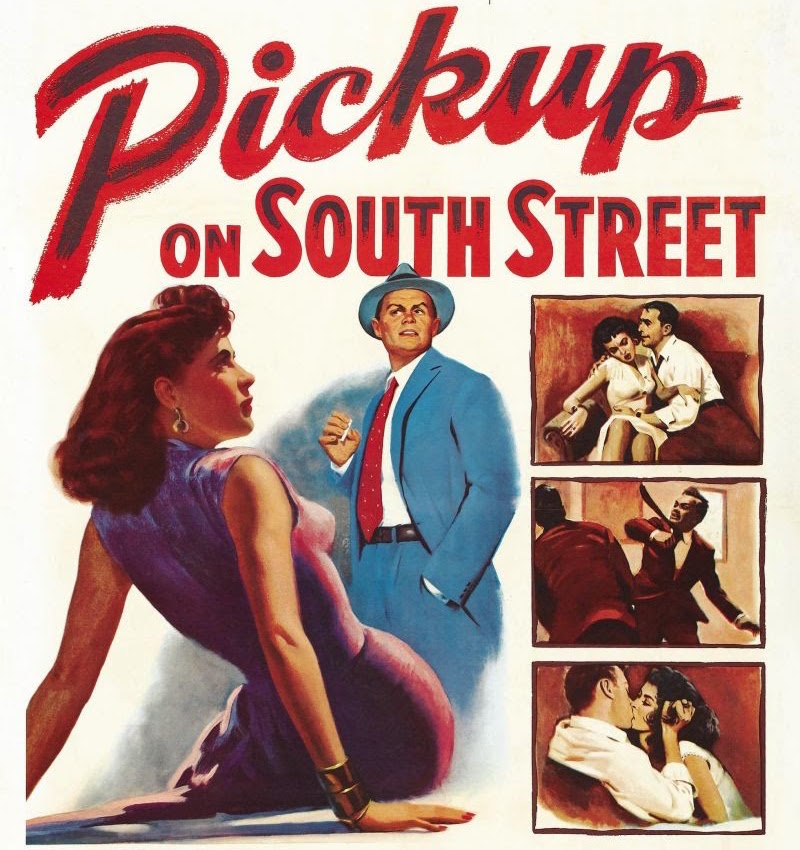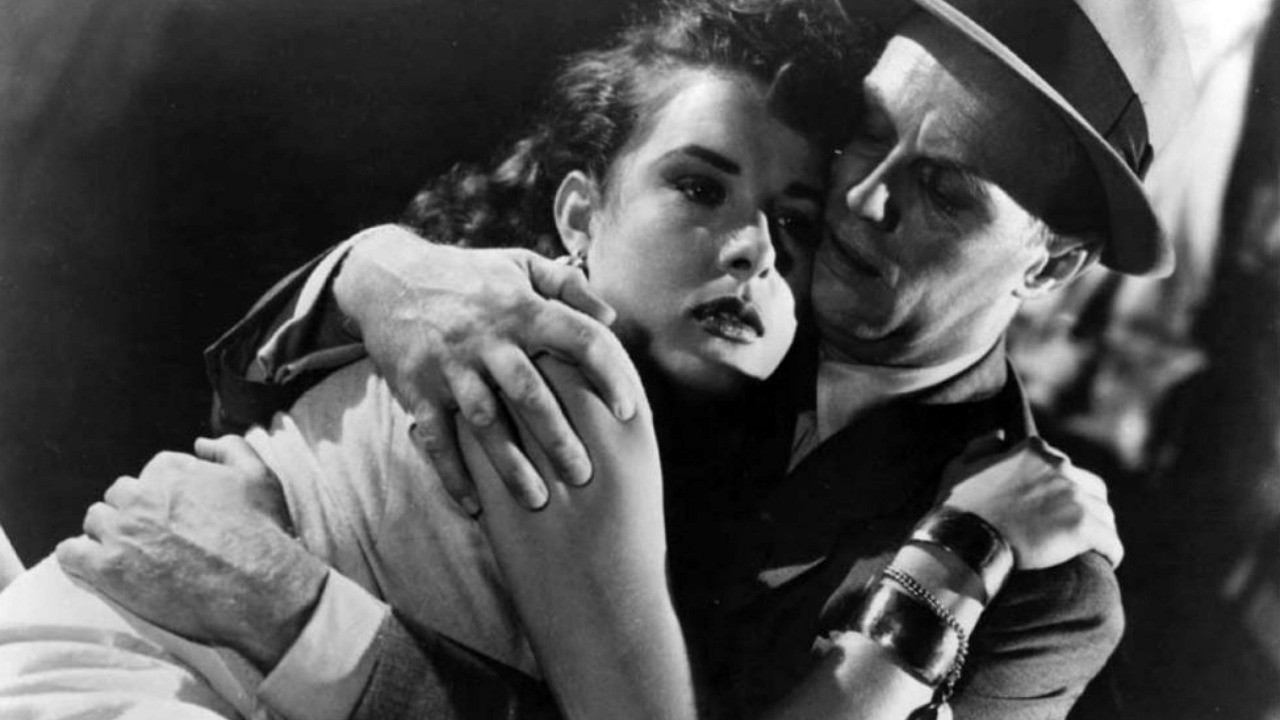【Erotic Movies Movies | Adult Movies Online】
Seeing Red
On Film
Anticommunism at the movies.

You’re trying awful hard with all this patriotic eyewash.
—Skip McCoy, Pickup on South Street
If you’re feeling polemical, you might argue that all Hollywood cinema is anticommunist: as the central commodity of the culture industry, big studio movies are designed for nothing so much as circulating and producing capital. But if we want to talk Communist with a capital C—you know, where the Cstands for USSR—then Hollywood’s anticommunist films are a special and specific genre of flops and farces, a cinematic tradition featuring such classics as I Married a Communist,The Red Menace,Assignment: Paris, and My Son John. (Spoiler: John’s a goddamned Bolshie!)
The fifties saw the heyday of anticommie popcorn flicks. True, the silent era had its Bolshevism on Trialand Red Russia Revealed, and the eighties met with Soviet invasion in Red Dawn and some serious anti-Vietcong violence in the later Rambomovies. But when you wanna see a square-jawed U.S. American call a sweaty creep a commie and slug him in the mouth, it’s the postwar period you turn to. Though most of the era’s anticommunist films were too vulgar and outlandish to survive as anything other than hilarious artifacts—or as evidence of the ever-imperialist, state-serving agenda of the Hollywood apparatus, depending on which side of the bed you woke up on—a few, Robert Aldrich’s Kiss Me Deadly and Samuel Fuller’s Pickup on South Street among them, are truly great works of cinema. (Granted, 1982’s Rambo: First Blood—if you excise the last four minutes, when Sly gives a speech crying about how hippies, those “maggots at the airport,” spit on him—is also pretty great.) Both are tense, pulpy noirs, both center around the sale of nuclear secrets, and both take anticommunism more as a genre then a narrative drive. But only one, Pickup on South Street(1953), is being revived this week at Film Forum, in New York.
Pickup centers on Skip McCoy, a New York City pickpocket played by Richard Widmark at his slimiest, antihero best. Skip has just gotten out of jail after his third arrest, and one more bust would mean going to the clink for life. Just his luck, the first week he’s out he picks the purse of Candy (Jean Peters), who’s unwittingly ferrying industrial secrets on microfiche for the Reds. Don’t worry: the FBI is on the case. In a strange but effectively claustrophobic opening sequence—set on the subway in near silence, and composed entirely of close-ups on Skip’s hands and glances between Skip, Candy, and two cops—his pick gets spotted.
To suss out Skip, the cops bring in Moe Williams (Thelma Ritter), the film’s real heart: an all-knowing queen of the pickpockets and professional stool pigeon, who sells neckties on the street for a buck and is hustling the cops and her “cannons” alike in order to afford a nice burial plot and headstone on Long Island. From here, Pickup mostly comprises different people—first the cops, then Candy, then the commies—showing up to try and get the film at Skip’s incredible safe house, an off-the-grid fishing shack on a pier directly under the Brooklyn Bridge, where he hangs an “icebox” out the window into the East River to cool his beers.
Where did Candy get the microfiche, you ask? From her ex, of course—a sleazy guy who sweats altogether too much to be a true, God-fearing American. Not only is he abusive: reader, he’s a Communist, even if the story he feeds to Candy maintains that he’s merely some industrial spy.
And he may as well be; in their sub-rosa meetings, he and his fellow pinkos never even mention Russia or Stalin or the USSR, let alone the dictatorship of the proletariat or the finer points of civil war. Indeed, Communism in the film is a fungible evil, an evil without content—communist is nothing more than a pure signifier meaning “bad guy.” Perhaps that’s why J. Edgar Hoover hated the movie.
*Or maybe he hated it because the America presented in opposition to Communist Russia is a bleak, desperate place—hardly worth dying for, as some characters pathetically, horribly do. Everybody in this film can be had for the right price. When Candy asks Skip how he feels about Moe selling him out and sending him to jail, he says, “She’s gotta eat, too.” So the cops buy out Moe; the communists buy out Candy; and then Skip, realizing what he’s got is valuable, raises his prices, and the whole process has to start again.

A still from Pickup on South Street.
Candy, for her part, goes from the arms of her abusive ex into those of Skip, who, having found a stranger snooping around his house in the dark, knocks her out cold; when he realizes she’s the same beautiful woman whose purse he picked that morning, he wakes her up by pouring beer on her face. They fall in love. When Candy cooperates with the cops, they send her into increasingly dangerous situations; she agrees with a nihilistic shrug and sigh. And so it goes: the cops threaten Skip, Skip threatens Candy, everyone threatens Moe, and occasionally the commies appear to murder cast members with impunity. It’s worth repeating: the most sympathetic character in the film is an old spinster living in a Bowery flop house, selling her friends out to the police so she can afford a nice grave plot. It’s a horrible world that these small-time hustlers are begrudgingly attempting to protect.
And indeed, that’s always been the rub with anticommie propaganda. If the USSR in the 1950s wasn’t always a fun place to be, neither was America. Anticommunism worked much better as a structural theme—as in genre movies like Invasion of the Body Snatchers or High Noon, or as an obvious subtext in films like North by Northwest and On the Waterfront. When cinema went a more direct route in telling the story of the Red Scare, of the commie threat within, it had to produce a narrative of a glorious and desirable America, a place nonetheless easily won over by an evil and pernicious ideological threat. To anticommunism, Bolsheviks are complete bogeymen, creatures of total, senseless malice who are still somehow able to win Americans to their cause.
But pure evil is a boring idea, narratively. Unless you’re Shakespeare writing Iago, it’s hard to make a compelling motivation out of evil for its own sake. Instead, the stories that make the most narrative sense, the kind of stories in Pickup on South Streetor Kiss Me Deadly, are about desperate people making contingent decisions based on survival, doing whatever they can to hustle up some money. They’re not stories about communism at all: they’re about capitalism and what people have to do to stay alive under it.
*The big guy reportedly balked at a line in which McCoy asks a feeb, “Are you waving the flag at me?”, going so far as to pressure the studio to remove it.
Willie Osterweil is a writer and editor at The New Inquiry.
Pickup on South Street is at Film Forum through June 4.
Search
Categories
Latest Posts
Swords into Marketshare
2025-06-25 23:26Verizon outage map: Which states are affected by phone SOS issue?
2025-06-25 23:22Best Buy Member Deals Days 2024
2025-06-25 22:49Art After Social Collapse
2025-06-25 21:57Popular Posts
GeForce RTX 2080 Ti & 2080 Mega Benchmark
2025-06-25 22:44When will the Verizon outage be fixed? Here’s what we know
2025-06-25 22:12VP debate livestream: How to watch Walz v Vance debate
2025-06-25 21:36Cut the Music
2025-06-25 21:34Featured Posts
The Death of Media
2025-06-25 23:25NYT Strands hints, answers for October 1
2025-06-25 22:51Black hole shot a beam through space. NASA snapped stunning footage.
2025-06-25 22:14State of the Unions
2025-06-25 22:11Popular Articles
Good Girls Gone Mad
2025-06-25 23:39The 25 best horror movies on Max that'll give you nightmares
2025-06-25 22:12'Oddity' review: Your new horror obsession has arrived
2025-06-25 21:33Faster, Higher, Stronger, More Harmonious
2025-06-25 21:01Newsletter
Subscribe to our newsletter for the latest updates.
Comments (65351)
Sky Information Network
Poison Ivies
2025-06-25 23:39Wisdom Convergence Information Network
South Africa vs. Argentina 2024 livestream: Watch Rugby Championship for free
2025-06-25 23:10Progress Information Network
When will the Verizon outage be fixed? Here’s what we know
2025-06-25 22:30Happy Information Network
New York Film Festival preview: 10 movies you ought to know about
2025-06-25 22:20Sky Information Network
We Don’t Have Elections
2025-06-25 21:25